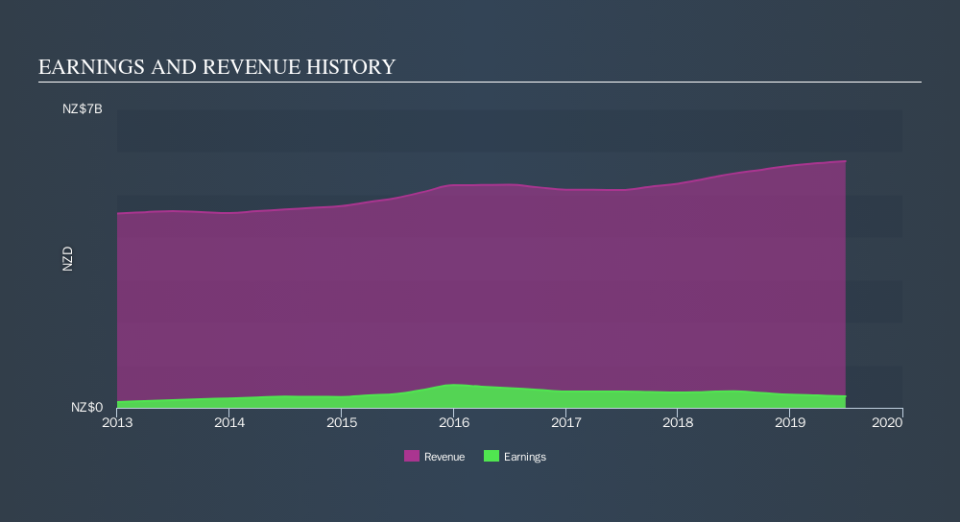Air New Zealand (NZSE:AIR) Shareholders Have Enjoyed A 47% Share Price Gain

By buying an index fund, you can roughly match the market return with ease. But if you choose individual stocks with prowess, you can make superior returns. For example, Air New Zealand Limited (NZSE:AIR) shareholders have seen the share price rise 47% over three years, well in excess of the market return (33%, not including dividends). On the other hand, the returns haven't been quite so good recently, with shareholders up just 12% , including dividends .
See our latest analysis for Air New Zealand
There is no denying that markets are sometimes efficient, but prices do not always reflect underlying business performance. One way to examine how market sentiment has changed over time is to look at the interaction between a company's share price and its earnings per share (EPS).
Over the last three years, Air New Zealand failed to grow earnings per share, which fell 16% (annualized).
So we doubt that the market is looking to EPS for its main judge of the company's value. Therefore, we think it's worth considering other metrics as well.
We note that the dividend is higher than it was preciously, so that may have assisted the share price. Sometimes yield-chasing investors will flock to a company if they think the dividend can grow over time. The revenue growth of about 4.4% per year might also encourage buyers.
The image below shows how earnings and revenue have tracked over time (if you click on the image you can see greater detail).
Take a more thorough look at Air New Zealand's financial health with this free report on its balance sheet.
What About Dividends?
It is important to consider the total shareholder return, as well as the share price return, for any given stock. Whereas the share price return only reflects the change in the share price, the TSR includes the value of dividends (assuming they were reinvested) and the benefit of any discounted capital raising or spin-off. So for companies that pay a generous dividend, the TSR is often a lot higher than the share price return. We note that for Air New Zealand the TSR over the last 3 years was 92%, which is better than the share price return mentioned above. This is largely a result of its dividend payments!
A Different Perspective
Air New Zealand shareholders gained a total return of 12% during the year. Unfortunately this falls short of the market return. On the bright side, the longer term returns (running at about 20% a year, over half a decade) look better. Maybe the share price is just taking a breather while the business executes on its growth strategy. Before spending more time on Air New Zealand it might be wise to click here to see if insiders have been buying or selling shares.
Of course Air New Zealand may not be the best stock to buy. So you may wish to see this free collection of growth stocks.
Please note, the market returns quoted in this article reflect the market weighted average returns of stocks that currently trade on NZ exchanges.
We aim to bring you long-term focused research analysis driven by fundamental data. Note that our analysis may not factor in the latest price-sensitive company announcements or qualitative material.
If you spot an error that warrants correction, please contact the editor at editorial-team@simplywallst.com. This article by Simply Wall St is general in nature. It does not constitute a recommendation to buy or sell any stock, and does not take account of your objectives, or your financial situation. Simply Wall St has no position in the stocks mentioned. Thank you for reading.

 Yahoo Finance
Yahoo Finance 
